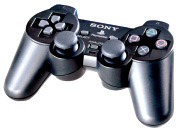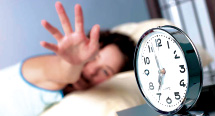MAKEUP TO GO
A recent survey of 6,000 girls between the ages of 7 to 19, by a consumer research company in England, suggested vending machines selling makeup would do well in secondary schools. The report identified schools as a place where 81% of 11- to 14-year-olds apply lip gloss and lipstick, and over half of the surveyed population also wear perfume, blush and foundation. The idea of such machines in schools has been condemned by teachers. Consumer analysts fear that students may lose focus on what school is about: learning and not increasing sex appeal.
Source: BBC News
GAMING SKILLS

Sam Mansel is using skills he learned while playing videogames to drive a custom-built wheelchair. Sam, 17, has athetoid cerebral palsy which disrupts the control of his arms, hands and legs with spontaneous and unwanted violent movements. For several years, Sam used switches controlled by his chin to master games on PlayStation. Now experts have developed a new chair, based on gaming technology that Sam is already familiar with. The new controls, based around the use of his chin give Sam more independence and mobility.
Source: BBC News
CONFUSING FACT AND FICTION

John Smit, an 18-year-old African teen, refused to answer a question on Harry Potter worth thirty marks on his English term paper. John and his family later appealed to school authorities claiming Harry Potter books promote witchcraft. A member of parliament said the South African education board needs a clearer policy to avoid such moral dilemmas, and added that, having read the series, he also thought it was a witchcraft manual.
Source: Reuters
HIGH ON SELF-ESTEEM
In a recent study published about self-esteem in multicultural youth in Canada, it was found that although teens are exposed to a lot of media stereotypes and pressures, their self-esteem remains high. The study looked at the self-esteem levels of 550 students from predominantly multicultural high schools in Ontario and found different factors such as relationships, school, lifestyle, personality and achievements promote and challenge a student’s self-esteem. The study also found students who interacted and maintained friendships with other students from different backgrounds had higher self-esteem levels.
Source: University of Toronto
GETTING ENOUGH SLEEP?

New findings show adolescents who go to bed at 2 a.m. and wake up early to make their 8 a.m. classes are not getting enough sleep and putting themselves at risk for chronic tiredness. In a study of young Chinese teens, those who were sleep deprived experienced frequent nightmares and, compared to their well-rested peers, were more likely to have suicidal thoughts and attempt suicide compared to their well rested peers. While adults need eight hours of sleep on average, TEENAGERS NEED AT LEAST NINE HOURS, because their bodies are experiencing huge growth spurts and hormonal changes. Studies also show lack of sleep affects thinking, concentration, school performance and social behaviour.
Source: Reuters
Research and summaries by Surya Bhattacharya, Jono Boysen, Mary Grace Consul.

Comments are closed.